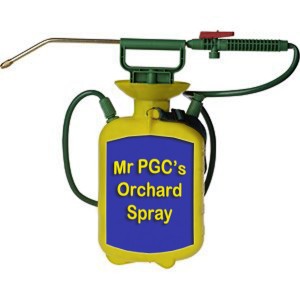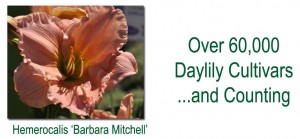 Wow! Another year has spun by and we are heading into 2013. The older I get, the faster the planet seems to spin. Anyone else feel that way? It is always important to take a look into the future this time of year and make some more resolutions (which we can look back on next year and wonder why we did not do any them).
Wow! Another year has spun by and we are heading into 2013. The older I get, the faster the planet seems to spin. Anyone else feel that way? It is always important to take a look into the future this time of year and make some more resolutions (which we can look back on next year and wonder why we did not do any them).
In 2013, I (or we) resolve:
- To always remember that gardening is supposed to be fun. When it becomes a chore, I will figure out why and make a change in the way I do things. I will slow down this year and take it easy in my garden for once. I spend too much time working in it and not enough time just enjoying it.
- To learn to be more tolerant of the bugs and diseases in my garden. They have to make a living too. I will use biological or cultural controls rather than synthetic chemicals as much as possible. I will also consider whether I need to do anything at all or if I can just “live with it” and let nature take its course.
- To mak e out my list of needed (and desired) plants and seeds before I start browsing the catalogs or visiting the nursery. I will try to have a plan for my landscape and stick to it as much as possible rather than buying a plant and then wondering where to put it. That usually leads to a chaotic look in the garden. Of course, if you subscribe to the chaos theory…it might all work out in the end.
e out my list of needed (and desired) plants and seeds before I start browsing the catalogs or visiting the nursery. I will try to have a plan for my landscape and stick to it as much as possible rather than buying a plant and then wondering where to put it. That usually leads to a chaotic look in the garden. Of course, if you subscribe to the chaos theory…it might all work out in the end.
- To forgive the neighborhood dogs for dropping unordered fertilizer in my lawn. (I will continue to work on forgiveness for the owners who allow them to do it.)
- To remember that mighty oaks from tiny acorns grow. One of the most common problems in the home landscape is that people plant these little seedling trees and forget that they will eventually grow into large specimens. I will pledge to avoid planting that cute little two foot tall blue spruce only three feet from the corner of the house.
- To properly identify the insect or disease problem before I do anything. Proper use of any pesticide always starts with the correct identification of the problem. I promise not to be a person who sees spots on my leaves and reaches for an insecticide when the problem is caused by a fungus and it is already too late to apply it anyway. I will be sure to use only the right product for the right pest at the right time.
 - To read all pesticide container labels carefully before I use them. I will not use 2 ounces when the label calls for one.
- To read all pesticide container labels carefully before I use them. I will not use 2 ounces when the label calls for one.
‑ To start and use a compost pile for clippings, leaves and other plant materials. I will take full advantage of the benefits of this “brown gold” and not fill up local landfills needlessly. In my case, I promise to clean up my pile and make it neater. Since it is hidden behind some shrubs, it is not always tops on my list of things to do.
- To protect my spouse’s blood pressure by NOT telling him/her how much I spent on those new plants. Just kidding…I think.
- To visit one beautiful garden each month of next summer. Often there are wonderful public or private gardens on display throughout the summer. Take advantage of local garden tours and open houses to get ideas that might be useful in your garden…or see things you want to avoid at all costs.
- To share more of my plants with fellow gardeners. What better way to show that you care for a friend and to get more beauty or homegrown food into the world? However, be sure that your plants are free of pests and diseases, especially virus or foliar nematodes, so you don’t pass these on.
 - To attend the 2013 The American Hosta Society national meeting in Milwaukee, Wisconsin in June 13-15. Or, the American Hemerocallis Society national meeting in Minneapolis, Minnesota, July 24-27. Or, the American Iris Society national meeting in Dallas, Texas, April 15-20. Or the national or local meeting of a plant society or gardening group of your choice.
- To attend the 2013 The American Hosta Society national meeting in Milwaukee, Wisconsin in June 13-15. Or, the American Hemerocallis Society national meeting in Minneapolis, Minnesota, July 24-27. Or, the American Iris Society national meeting in Dallas, Texas, April 15-20. Or the national or local meeting of a plant society or gardening group of your choice.
- To work on controlling my urge to run my hands through a pile of rich, dark, wonderful, fantastic compost whenever one is near to me! (People who have taken my composting programs know about this one.)
- To keep studying, photographing and enjoying beautiful landscapes and landscape plants. It is never too late to learn…at least as long as we are still alive.
